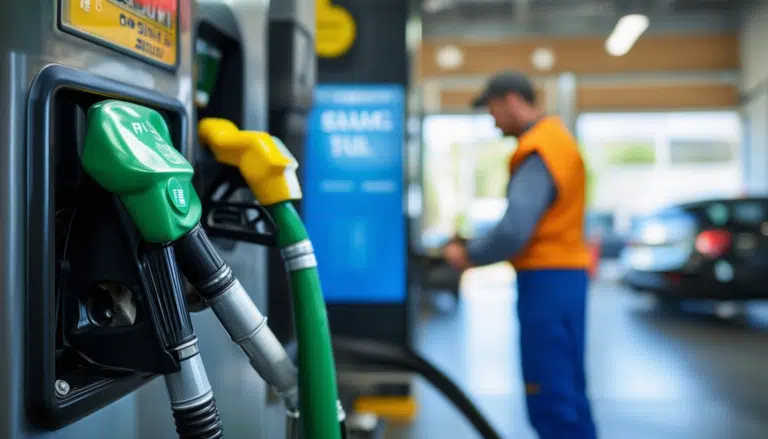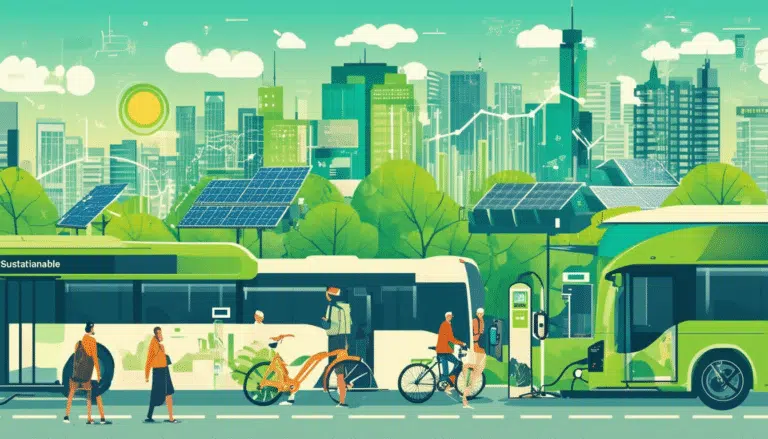S incentive systems to promote the reduction of spending on fuel
The search for sustainable solutions and the reduction of fuel spending has become crucial in the current context of climate change and resource scarcity. Incentive systems play a fundamental role in motivating both businesses and individuals to adopt practices that not only reduce the consumption of fossil fuels but also improve energy efficiency. Through various strategies, governments and organizations can encourage collaboration and innovation towards more responsible and cost-effective alternatives.
The reduction of fuel spending has become a priority in the quest for more sustainable practices. To achieve this goal, various incentive systems have been implemented by both governments and companies. These mechanisms not only promote efficiency in fuel consumption but also foster the adoption of clean technologies and responsible practices that benefit the environment.
Government incentives for fuel savings
Governments around the world have begun to introduce incentives designed to facilitate the energy transition. This includes subsidies and tax deductions for electric vehicles, as well as awareness campaigns about the use of public transport and carpooling.
One of the most relevant initiatives is the Global Fuel Economy Initiative (GFEI), which aims to increase energy efficiency in the transportation sector globally. Through these types of policies, a significant reduction in the carbon footprint and considerable economic savings for consumers are expected.
Incentives in the business sector
Companies also play a crucial role in the implementation of incentive systems. Many are adopting measures such as carpooling and a more eco-friendly approach in their operations. For example, some will offer preferred parking for shared vehicles, encouraging employees to collaborate in reducing emissions.
Furthermore, programs for regular maintenance of vehicles and training in efficient driving are being promoted. These practices not only help decrease fuel consumption but also translate into significant savings in operating costs.
Benefits of energy efficiency
Energy efficiency is associated with multiple economic and environmental benefits. By implementing savings strategies, companies can experience a 40% reduction in electricity consumption, representing a notable improvement in resource management and a decreased dependence on fossil fuels.
A clear example of this impact is seen in the production of electric vehicles. These types of cars are not only more sustainable, but they can also mean savings of up to 960 thousand colones annually for households, thus stimulating a shift towards a more responsible lifestyle.
The role of technology in reducing spending
Modernization through technology has facilitated the implementation of systems that optimize fuel performance. The use of telemetry and fleet management software allows companies to monitor their consumption and adjust their operations, resulting in improved efficiency.
Additionally, advancements in hybrid and electric vehicles have provided cleaner alternatives to reduce dependence on fossil fuels. China, for example, has offered incentives to car manufacturers, contributing to a transformation of the automotive sector towards less polluting alternatives.
Conclusion
The integration of incentive systems in both the government and business sectors is key to promoting the reduction of fuel spending. As more organizations and governments adopt these practices, a significant impact on sustainability and environmental protection is expected.
For more information on these strategies, the following links can be consulted: Increase in spending, Annual savings, Electric consumption, and Incentives for electric cars.
The implementation of incentive systems has proven to be an effective solution to encourage the reduction of fuel spending. These systems aim to motivate both businesses and individuals to adopt more sustainable and efficient practices in the use of energy resources. Through public policies and specific programs, governments can stimulate the transition towards less polluting and more efficient transport options.
One of the most relevant strategies is the promotion of carpooling, where tax incentives or benefits such as preferred parking for shared vehicles are offered. This practice not only reduces the number of cars on the roads but also promotes significant savings in fuel consumption. By joining forces in this initiative, companies can contribute to sustainability while also improving their corporate image in the face of consumers who are increasingly conscious of the environment.
Moreover, the establishment of emission standards and the promotion of emerging technologies in vehicles are formulas that complement these incentives. Regulations can force manufacturers to innovate by developing more efficient cars that reduce polluting emissions. This can also translate into long-term savings for consumers, who will benefit from lower fuel costs.
Finally, it is crucial to present citizens with clear information about the economic and environmental benefits of reducing fuel spending. Awareness and education campaigns are essential for everyone to understand the positive impact their behavior can have. Ultimately, a collective change in consumption habits can lead to a significant reduction in the carbon footprint and advance towards a more sustainable future.




